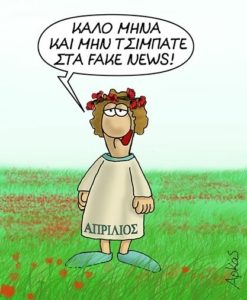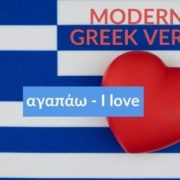The Greek “Happy Fools’ Day” on April 1st is traditionally established as the day that we fool the others or tell jokes. On April 1st, you can also use the Greek wish “Καλή Πρωταπριλιά !” (Kali protaprilia) = Happy Fools’ Day!
The only difference is that in Greek you actually say “Happy First of April”!
Some history about April 1st!
The April Fools’day has its roots in the ancient Celtic tradition. When the weather got better they used to go fishing. Most often they were coming back with empty hands but full of stories! From Celts and French the custom was spread worldwide. In Greece the custom must have been known since the time of the Crusades.
Some examples of “April 1st jokes” that never will be forgotten:
In 1957, The spaghetti-tree hoax was a three-minute hoax report broadcast by the BBC, showing a family in Switzerland harvesting spaghetti from a “spaghetti tree”. Back then spaghetti was relatively little-known in the UK, so that many Britons were unaware that spaghetti is made from wheat flour and water.
In 1993, The Independent had its archaeological prank, when the newspaper announced the discovery of the 3000-year old village of cartoon heroes Asterix and Obelix. The village, said to be 3000 years old, was reportedly found at Le Yaudet, near Lannion, France – almost exactly where author Rene Goscinny placed it in his books. Professor Barry Cunliffe of Oxford University and Dr. Patrick Galliou of the University of Brest were credited with its finding.
In 1995 the Greek Ministry of Culture said it found the tomb of Socrates, the old philosopher who is buried in an unknown place. It was said the tomb was found near the base of the Acropolis during excavation for the Athens metro system. A vase containing traces of hemlock was reportedly in the tomb, too. The French news wire Agence France-Presse reported the prank first.
Note: Do not forget, the 1st of every month, in Greece you also say “Kalo Mina”!
We wish you a very nice month of April.
Καλή Πρωταπριλιά και Καλό μήνα!

If you want to learn more useful wishes, which are used in the daily Greek Language, then click here and download your free eBook, with audio for the correct pronunciation









